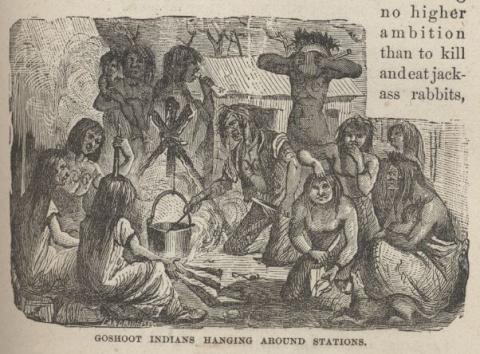I recently asked a group of Mark Twain scholars about a comment in the notes section of the book “Heretical Fictions…”, that Twain had become "sympathetic toward and even admiring of Indians in the final decades of his life." My question drew little comment but I did receive a recommendation for a Masters Thesis from William and Mary College written by Carol Van Dessel Vaughn, “Mark Twain, Richard Irving Dodge, and the Indian: Myth and Disillusionment”, 1984.
Written long before Kerry Driscoll’s classic volume, “Mark Twain Among the Indians…” (2018), Vaughn denies that Twain hated Indians, that he only used them as a rhetorical device to criticize Western Civilization. I’m impressed with Vaughn’s research into Twain’s use of Indians as a rhetorical device but remain unconvinced that he did not despise Native Americans.
It has been long recognized that Twain disguised his criticisms of Western Culture with humor. He made an effort to avoid offending his audiences and as a consequence much of what he believed went unrecognized. Vaughn singles out what she considers the most important indications of a diminishing of “harshness towards the Indian” and a disassociation from racism, “Captain Stormfield’s Visit to Heaven” and his speech “Plymouth Rock and the Pilgrims”. It is my own view that Twain did not and could not dissociated himself from racism and I have seen nothing to convince me that he ever became sympathetic toward and even admiring of Indians. Racism, the idea that significant biological differences between groups of people denote hierarchies of qualities and abilities, was the accepted paradigm of the day and unfortunately persists today.
Vaughn writes that “Twain saw the Plain’s Indians’ social system, or code of morals, as different from but not necessarily less civilized than the systems of white people—the feudal system, the Southern slaveholders’ system, and the system adhered to by turn-of-the century imperialistic America,…” Twain’s aversion to Imperialism may have come a bit later, following America’s actions in Cuba and the Philippines. She also writes “Education in white ways, Twain believed, would merely mean that the Indian would exchange one corrupt set of moral laws for another.”
Vaughn, I believe, is mistaken about the origins of Twain’s “aversion” to American Indians. She writes that it “developed out of his own experience with the Digger and the Gosiute Indians”. I think his “aversion” is far more deep seated and possibly began with his grandmother’s stories of Indian massacres from a time of early infringement by “whites” into Indian territories. I have found no solid evidence that Sam Clemens ever had any direct interaction with any Native American culture. He did observe what remained of damaged cultures, members of which were attempting to fit in with the now dominate “white” culture. He had no way of knowing about the lives of Native Americans pre-contact. He never visited any tribal areas directly but only heard stories from others. He was never attacked by any Native Americans. He fancied himself as knowledgeable about Indians because he had lived for a few years in the Nevada Territory.
Evidence for Twain’s aversion to American Indians was pronounced in 1886. Contrary to his noted history of generosity towards charity cases, Twain refused an invitation from the Connecticut Indian Association for unspecified support in February of 1886. Kerry Driscoll has written a detailed account of his involvement, or refusal of involvement, with this organization, one popular among his Nook Farm neighbors of the time. See her article in the 2004 issue of the Mark Twain Annual, "Man Factories" and the "White Indians" of Camelot: Re-reading the Native Subtext of "A Connecticut Yankee in King Arthur's Court".
Further, the severity of his narratives related to Native Americans belie any impartiality he may be thought to have had towards them. He may not have seriously recommended extermination, any allusions to this would likely be of the same nature as that employed in Jonathan Swift’s “Modest Proposal”, but if Twain did not hate them he did despise them.
If his attacks and caustic remarks diminished in his later years I suggest it may be due to decreased public attention given to Native Americans following the near total elimination of Native American cultures in North America, consequently not something he was thinking about. Also, he may have gained new respect for aboriginal cultures following his around the world tour, especially in regards to aboriginal Australians, whom he thought to have been rendered extinct.
Vaughn notes in her concluding remarks that in Twain’s heaven, as described in Captain Stormfield’s visit, “in the American section of heaven, Indians outnumber whites overwhelmingly, simply because more Indians than whites have died in America over the course of history.” This does nothing to disprove Twain’s disdain for Indians, it merely accentuates his negative idea of Western Civilization; "heaven for climate, hell for company!"
- Log in to post comments
